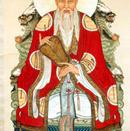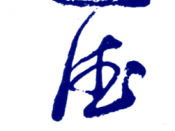The Tao-te Ching is the second most translated literary work, just behind the Bible. Although it was written more than 2,600 years ago, the lifestyle Lau-tzu advocates is still applicable today. When properly planned and thought out a modern American could live in a Taoist way if they were committed to do so, and many could greatly benefit from the influence of Lau-tzu's principles in their lives. In the Tao-te Ching, Lao-tzu emphasizes that good leadership involves having enough patience to wait for natural patterns of life to complete their cycles, and trusting that out of those cycles balance will emerge. I see how applying elements of Lau-tzu's teachings in my life results in less stress and a greater confidence in nature's method.
Patience is one of the hardest skills to master when young. It seems around every turn there is a line to wait in, someone lagging behind, or a parent stuck doing something time-consuming.
After entering adulthood it becomes easy to wait for the simple things, but waiting for some things remains out of reach for many. Our modern society encourages action for achievement, but in verse 57 of The Tao-te Ching, Lau-tzu teaches us that in everything there is an assured balance and if given enough time everything will find its own resolution.
"If you want to be a great leader,
You must learn to follow the Tao.
Stop trying to control.
Let go of fixed plans and concepts,
And the world will govern itself."
In this verse, "the world" includes not only the earth but those people who live on the planet. Many conflicts would find resolution without the meddling of outside groups. In most cases, it is inappropriate for external nations and leaders to interfere with matters of another country or organization; however...


